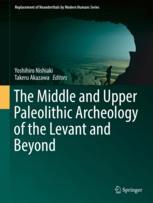

Most ebook files are in PDF format, so you can easily read them using various software such as Foxit Reader or directly on the Google Chrome browser.
Some ebook files are released by publishers in other formats such as .awz, .mobi, .epub, .fb2, etc. You may need to install specific software to read these formats on mobile/PC, such as Calibre.
Please read the tutorial at this link: https://ebookbell.com/faq
We offer FREE conversion to the popular formats you request; however, this may take some time. Therefore, right after payment, please email us, and we will try to provide the service as quickly as possible.
For some exceptional file formats or broken links (if any), please refrain from opening any disputes. Instead, email us first, and we will try to assist within a maximum of 6 hours.
EbookBell Team

4.1
60 reviewsThis volume is a compilation of results from sessions of the Second International Conference on the Replacement of Neanderthals by Modern Humans, which took place between November 30 and December 6, 2014, in Hokkaido, Japan. Similar to the first conference held in 2012 in Tokyo, the 2014 conference (RNMH2014) aimed to compile the results of the latest multidisciplinary approaches investigating the issues surrounding the replacement of Neanderthals by modern humans. The results of the sessions, supplemented by off-site contributions, center on the archeology of the Middle and Upper Paleolithic of the Levant and beyond. The first part of this volume presents recent findings from the Levant, while the second part focuses on the neighboring regions, namely, the Caucasus, the Zagros, and South Asia. The 13 chapters in this volume highlight the distinct nature of the cultural occurrences during the Middle and Upper Paleolithic periods of the Levant, displaying a continuous development as well as a combination of lithic traditions that may have originated in different regions. This syncretism, which is an unusual occurrence in the regions discussed in this volume, reinforces the importance of the Levant as a region for interpreting the RNMH phenomenon in West Asia.